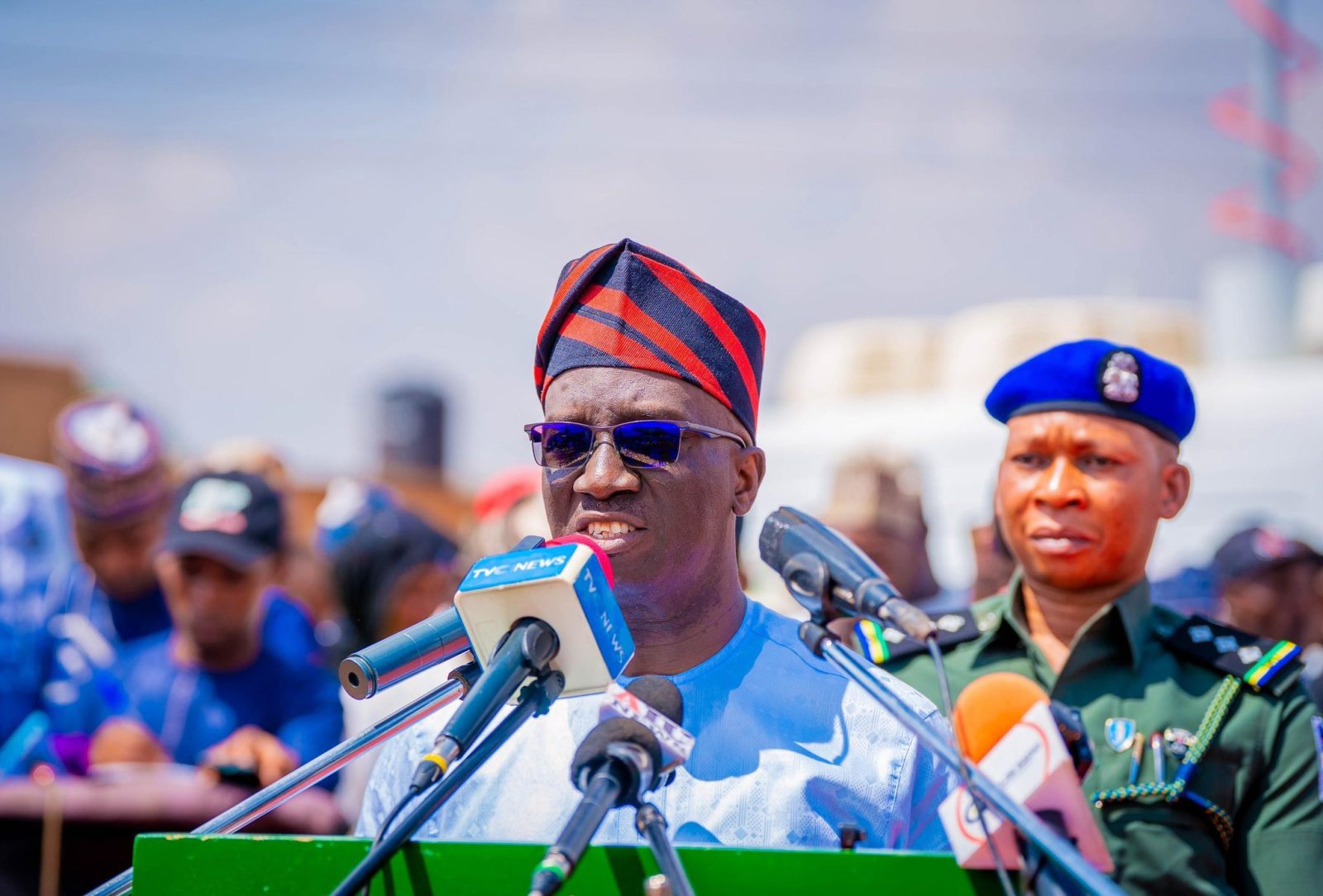By Patrick Obahiagbon
Having enjoyed the privilege of spending eight years in the Edo State House of Assembly during which I was the leader of the house for some eon; and, thereafter, a member of the House of Representatives in Abuja for four years, I can asseverate, without being accused of any streak of immodesty, that I am sufficiently versed and knowledgeably vast in the mechanism of the legislature as a third arm of the trinity of government both at the state and federal levels.
The declaration supra presupposes that I understand the shapes, forms, organic contents and textures of the dynamism, politicking, conspiracy and filibustering that characterise the legislative ambience. Significantly, I am conversant with the utilitarian purposes to which the gavel and the mace are deployed within the existential construction of pragmatic and routine legislative rendezvous. Suffice to say that I can pontificate ad-infinitum about the gavel and the mace as well as bills, motions and resolutions of the parliament.
But it is the subject of the gavel that I intend to engage in this piece, particularly against the backdrop of the recent suspension of Senator Ovie Omo-Agege by the Senate and others before him.His suspension from the Senate for 90 days has increased the number of legislators that had, in recent times, suffered such ostracism apparently for acting in ways that were divergent to the positions of the leadership of the National Assembly.
There is no doubt that the positions of the Senate and House of Representatives leadership are the majority positions due to the patronage system available to the presiding officers of both houses of the National Assembly.That is the reason anyway why the senate president and speaker still keep their positions as presiding officers. If they do not enjoy the support of the majority of their members, it would have rendered them tentative and dilatory in the way and manner they wield the gavel to determine the fates of members that move against the run of play. Abdumumini Jibrin robustly engaged the power of the gavel in the House of Representatives.He however did not only lose his juicy chairmanship of the Appropriation Committee but also got suspended from the House for 180 legislative days.
In a pitiable dismally subdued fashion, Jibrin recently returned to the House on its terms and has since lost his voice. Before Jibrin, there was the case of Ali Ndume in the Senate. Ndume also lost his position as senate leader for his seeming support for the screening of the acting chairman of the Economic and Financial Crimes Commission (EFCC), Mr. Ibrahim Magu, whose nomination has since been rejected two times by the Senate. There might have been other actions by the senate that portrayed him as disloyal to the leadership and the cabal in the legislative arm.
The Ndume-Jibrin-Omo-Agege suspension sagas are direct outcomes of the incontinence of the use of the gavel by the presiding officers who wield them. Unfortunately, the notoriety and the tyranny of the gavel satiate their non-altruistic conspiratorial indulgences. With the support of the majority members, especially the privileged members of the leadership cabals, the presiding officers demonise, traumatize and ostracize their foes.
In recent times, those that have been so debased in the 8th National Assembly would appear to have pandered in the direction of solidarity and support for the presidency. Whereas, the parliament is a platform for taking positions and ventilating ideas on diverse socio-political and economic issues whether or not they align with political party principles; whereas, it is a market place of ideas on how to run a democratic society, members cannot be cocooned, pigeon-holed or manacled into a strait-jacket support for ideas or issues that feed the whims and caprices of the leadership of the legislature.
The Parliament is the people’s assembly by proximate representation. Unlike the executive arm of government where, apart from the president and the vice president at the federal level and the governor and the deputy governor at the state level, every other member of the arm is appointed, the parliament is the conclave of the people’s representatives where each member represents and speaks for a group of people.
To subject the fate of a legislator to the tyranny of the gavel; to put the representation by a member in a quandary through the instrumentality of a quasi-judicial intercession on the floor wherein the Ethics Committee is saddled with a predetermined assignment to pronounce an “errant” member guilty in readiness for suspension just because he or she holds contrary views, is to circumvent the voice of the people he or she represents.
There is hardly little or nothing that the victim can do before or after the contrived decision to shut him or her out of the parliament. Not even the normal resort to court for reprieve can mitigate the negative action. The legislature has always turned its back on judicial pronouncements concerning its vaunted internal affairs. Taking advantage of the parliamentary immunity on the floor to verbalise and demonise anyone under the sun as well as regulate its affairs, the legislature has assumed the position of God from gavel-to-gavel.
Rather than only deploy this pragmatically for national good, the legislature and its leadership have also deployed the power for politics of vendetta and personal ends. Whereas, the best thing would have been for the legislature to allow the people who voted for each member to determine his or her fate either through recall or denial of re-election, the legislature and its leadership have chosen to resort to self-help. I suggest that there should be some other ways, other than suspension from parliament, by which perceived errant members should be sanctioned.
It is also sad that the medium of apologia on the floor of the House of Representatives has become ineffective to stay the hands that wield the gavel. When I was faced with a situation where my position on a national issue in the media was misinterpreted by some of my colleagues and the matter was raised on the floor, I tendered an apologia and it was accepted largely because the wielder of the gavel, Hon.Oladimeji Bank ole, understood and allowed my rights of dissent with the dominant cabal around his leadership.
Omo-Agege reportedly tendered an apologia in his own case. But that the Senate would still go ahead to suspend him, as the National Assembly had done to some before him, putting them to parliamentary seppuku for dissenting with the cabal around the leadership, was suggestive of an irrevocable agenda.
That Omo-Agege headed for the court could not have been a wrong step. It was the right step in the right direction. The court has jurisdiction to hear his matter and enter judgment as deemed appropriate after considering the facts of the evidence before it. I am manically bewildered that the National Assembly, despite a cornucopia of court cases and an Appeal Court case for that matter, forbidding the suspension of members, has continued to engage in the shameful danse macabre.
Pray, are members of the National Assembly not supposed to be exempli gratia in respecting our laws and court orders? Are judicial precedents or case laws no more laws? Is the willful violation of court pronouncements by the Senate and House of Representatives as it affects the sacrosanct right of members not as malodorous and putrescent as what Omo-Agege is accused of? Is it not patently reprehensible that even the parliamentary support group for President Muhamamdu Buhari was banned by the Senate? When has it become an offence for members to freely associate in groups within the Senate?
This is high-handedness taken too far. This is the full crystallization of legislative brigandage that finds odious anchorage in the jejune politics of intimidation and brinkmanship that is calculated to push the back of President Buhari to the wall in the 2019 re-election permutations. I condemn the legislative gambit to deuce Buhari. I frown at the highhandedness of the National Assembly leadership to silence and degrade opposition in a supposed bastion of democracy where the rule of law and robust contestation of ideas should ordinarily define legislative interactions. This tyranny of the gavel must stop.
· Hon. Obahiagbon, an APC Chieftain and one-time member of the House of Representatives, sent this piece from Benin.























Leave a comment